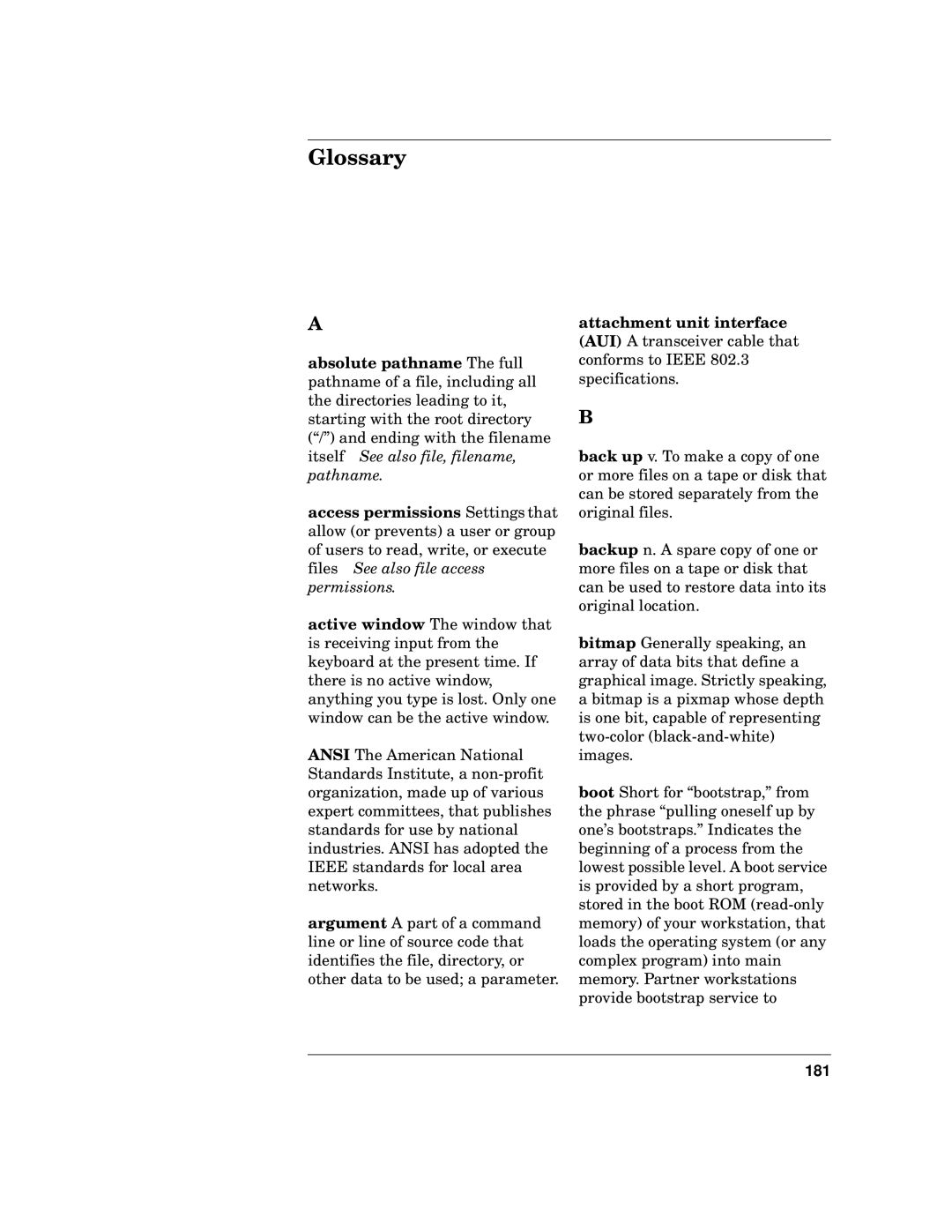
Glossary
A
absolute pathname The full pathname of a file, including all the directories leading to it, starting with the root directory (“/”) and ending with the filename itself See also file, filename, pathname.
access permissions Settings that allow (or prevents) a user or group of users to read, write, or execute files See also file access permissions.
active window The window that is receiving input from the keyboard at the present time. If there is no active window, anything you type is lost. Only one window can be the active window.
ANSI The American National Standards Institute, a
argument A part of a command line or line of source code that identifies the file, directory, or other data to be used; a parameter.
attachment unit interface
(AUI) A transceiver cable that conforms to IEEE 802.3 specifications.
B
back up v. To make a copy of one or more files on a tape or disk that can be stored separately from the original files.
backup n. A spare copy of one or more files on a tape or disk that can be used to restore data into its original location.
bitmap Generally speaking, an array of data bits that define a graphical image. Strictly speaking, a bitmap is a pixmap whose depth is one bit, capable of representing
boot Short for “bootstrap,” from the phrase “pulling oneself up by one’s bootstraps.” Indicates the beginning of a process from the lowest possible level. A boot service is provided by a short program, stored in the boot ROM
181
